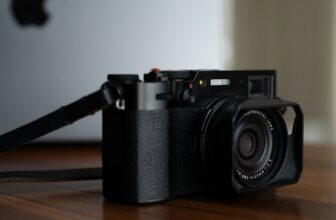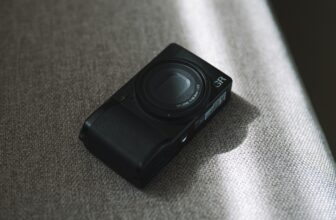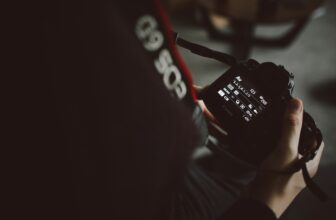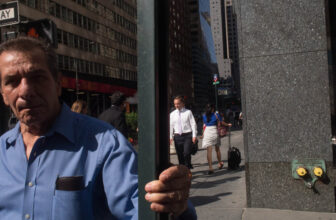The Best Lens for Capturing Amazing Car Photography
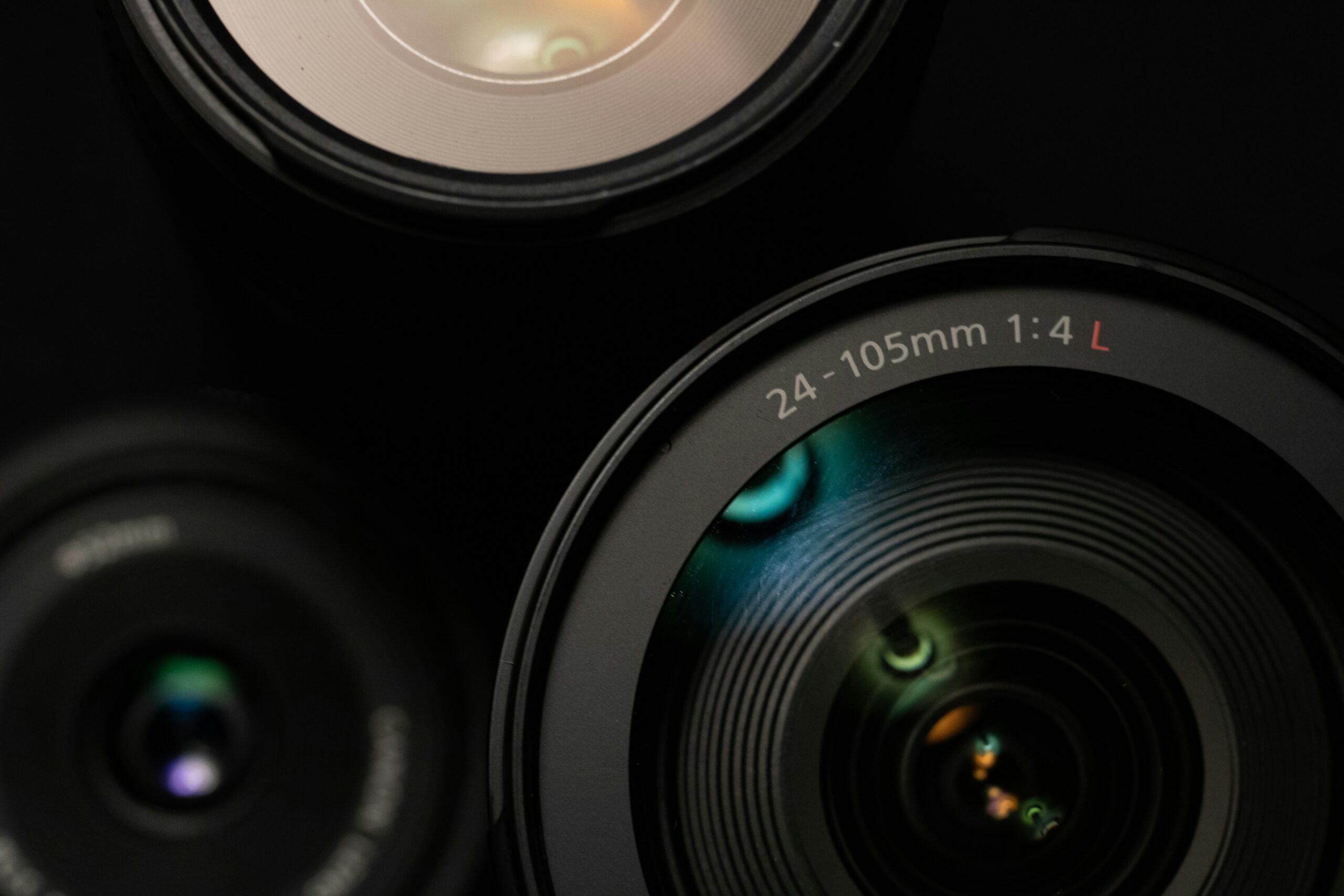
This post contains affiliate links which means I may receive a commission from purchases made through links. I will only recommend products I know personally used, and can attest to their high quality. Learn more on my private policy page
The right camera lens is an important part of capturing the best car photography. In this article, we will explore the best camera lenses for car photography that will enhance your craft and help you achieve amazing photos. It doesn’t matter if you’re shooting still cars or capturing action on the racetrack, the cameras in this guide will do the job!
Table of Contents
The Zoom Lens – 24-70mm
Why is a zoom lens a great choice for car photography? Well, it provides many shooting options for car enthusiasts. The 24-70mm lens is ideal choice due to its ability to capture a range of shots, from wide-angle landscapes to detailed close-ups.
If you like shooting still cars or capturing action on the racetrack, this lens will provide the best quality. Its wide aperture allows for excellent depth of field, ensuring that your car images stand out with great detail.
The 24-70mm lens is great because it offers several options to showcase the car. You can capture the car against a sunset with a scenic backdrop, or get up close for a detailed shot of your beauty. The ability to switch focal lengths without changing lenses can be freeing in itself. A zoom lens provides the most popular focal lengths for car photography without being limiting.
The Prime Lens – 50mm
the 50mm prime lens is the perfect tool for isolating the car in the real world. This lens is a favorite among car photographers for its ability to bring out the smallest design elements and add a touch of art. With its wide aperture, the 50mm lens allows you to create great bokeh, separating the car from its background and drawing attention to the subject.
It is great for shooting models with cars, adding depth and dimension to your shots, since the 50mm lens is a good all-around lens for portrait photography. Having a car as the background can help tell a story.
The 50mm lens is perfect for achieving a shallow depth of field, which is great for isolating the car from its surroundings and creating a dreamy, cinematic look. In a parking lot or a scenic location, the wide aperture of the lens allows you to blur the background, putting the focus solely on the car itself. This technique adds a sense of drama and the background becomes a storytelling element.
The Long Lens – 70-200mm
The 70-200mm lens is a great choice for making it feel like the car is right in front of you. It gives the car presence by bringing it closer to the viewer’s eyes. If you are shooting on the racetrack, this lens can convey the feeling that you are actually right there, thus providing much more visual impact.
Overall, the 70-200mm lens is a must-have for any serious car photographer looking to capture breathtaking images. Its long focal length range, wide aperture, and exceptional image quality make it a versatile tool for capturing distant shots and adding impact to your car photography. Whether you’re capturing cars on the racetrack or creating stunning static shots, the 70-200mm lens will help you achieve the desired results and elevate your car photography to new heights.
Lens Recommendations for Different Camera Brands
Depending on the camera brand you use, there are specific lens recommendations that work best for car photography.
Fujifilm XF 56mm f/1.2 R
Pros:
- Shallow Depth of Field: The f/1.2 aperture allows for a very shallow depth of field, which can beautifully isolate a car from the background, drawing attention to the subject.
- Low Light Performance: very good in low light because of the larger aperture
Cons:
- Size and Weight: It’s the largest and heaviest prime lens for the X-system
- Autofocus Speed: It has a slower autofocus, especially in low light or when switching from near to far subjects
- No Image Stabilization: The lens isn’t optically stabilized so you will have to shoot at higher shutter speeds
Fujifilm XF 16-55mm f/2.8 R LM WR lens
Pros:
- Excellent Sharpness: Great for up-close detail shots of the car
- Versatile Focal Range: can capturing various compositions in car photography
- Fast and Quiet Autofocus: Quick and precise autofocus is beneficial for shooting both stationary and moving car
Cons:
- Some Barrel Distortion: At 16mm, there is some barrel distortion which can affect straight lines in a photo.
- Corners Not as Sharp at Wide Angles: At the widest angle, corner sharpness is not as strong as the center
- Weight and Size: The lens is on the larger and heavier side for APS-C lenses
Canon:
Canon EF 50mm f/1.8 STM
Pros:
- Large Aperture for Low Light and Depth of Field: create for low light and shallow depth of field for isolating the car
- Sharpness: Stopping down the lens to f/2.8 or f/4 significantly improves corner sharpness and overall image crispness.
- Compact and Lightweight: very easy to carry around
Cons:
- Vignetting and Softness at Wide Aperture: At the widest aperture, there is some vignetting and softness in the corners
- Autofocus Speed and Sound: slow and noisy autofocus but improved from the last version
- No Image Stabilization: The lens lacks optical image stabilization (OIS), which means photographers need to use faster shutter speeds to avoid camera shake
Canon 24-70mm f/2.8 lens
Pros:
- Sharp: sharp and great for capturing the fine details of cars.
- Build Quality: The build and weather sealing make it durable for outdoor conditions
- Fast and Accurate Autofocus: The ultrasonic motor ensures fast and accurate focusing, never miss a fast car again.
Cons:
- Vignetting at Wide Apertures: There is pronounced vignetting at 24mm when shooting wide open
- Distortion: While distortion is well controlled, there is noticeable barrel distortion at 24mm and pincushion distortion at 70mm
Sony FE 50mm f/1.8 lens
Pros:
- Large Aperture: The f/1.8 maximum aperture allows for a shallow depth of field, which can be used creatively to isolate the car from the background.
- Lightweight Design: easy to carry for long photoshoots when you want to run around the car and get creative with angles
- Affordability: price is very good for what you’re getting, its a great overall budget lens for sony.
Cons:
- Autofocus Performance: this particular lens is noted to have the worst-performing autofocus in Sony’s lineup.
- Lack of Optical Stabilization: The lens is not optically stabilized, which means it relies on the camera body’s stabilization. That means its less likely you will get a car in focus when its moving a bit fast.
- Build Quality: the plastic might not be as durable as metal lenses, which could be a concern.
Sony 24-70mm f/2.8 lens
Pros:
- Versatile Focal Range: The 24-70mm zoom allows you to get close and take detailed close-ups, or get a landscape shot.
- Image Quality: The lens can produce sharp images with good color accuracy and beautiful bokeh
- Autofocus and Subject Tracking: The autofocus and tracking is fast, making it easy to keep your shots of the car sharp.
Cons:
- Sweet-Spot Aperture: While the lens is sharpest at its center at 24mm, stopping down to f/5.6-f/8 is necessary to achieve corner sharpness for all focal lengths.
- Size and Weight: The lens is quite heavy and not easy to carry for longer periods of time.
Sony FE 70-200mm 2.8 G Master II
Pros:
- Excellent Build Quality: an all-metal body that is solid and durable
- Sharp: pin sharp across the frame throughout its focal range, even wide open at f/2.8.
- Weight Reduction: 29% less heavy than the previous version
Cons:
- Weight: it is a heavy lens at 1480 grams. Although at this focal length that is sort of expected.
- Size: Although it has been made lighter, the lens is still relatively large, which might not be ideal if you don’t like the bazooka look.
Lens Tips and Tricks for Sharper Car Images
Here are a few tips for sharp and stunning car images:
- Use Adequate Lighting:
If you want to capture the textures and details of a car, you should shoot early in the morning when the sun rises to get the softest light possible. Alternatively, go for a shoot when the sun is going down to achieve a similar effect.
- Optimize Your Aperture: To get a sharper image go for a smaller aperture (higher f-stop) to increase the depth of field and maintain sharp focus throughout the car.
FAQ
What are the best camera lenses for car photography?
The best camera lenses for car photography include the 24-70mm lens for versatility, the 50mm prime lens for capturing details, and the 70-200mm lens for capturing distant shots.
What is the 24-70mm lens used for in car photography?
The 24-70mm lens is a versatile zoom lens that allows you to capture a wide range of shots, from wide-angle landscapes to detailed close-ups.
How does the 50mm prime lens enhance car photography?
The 50mm prime lens is great for capturing details and creating a shallow depth of field, adding depth and taking photos of models near the car.
Why is the 70-200mm lens important for car photography?
The 70-200mm lens is ideal for capturing distant shots or achieving a compressed perspective, adding drama and emotional impact to your car images.
This post contains affiliate links which means I may receive a commission from purchases made through links. I will only recommend products I know personally used, and can attest to their high quality. Learn more on my private policy page


